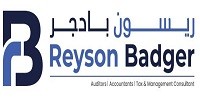Difference between Accounting and bookkeeping

The Importance of Accounting Services
Accounting is one of the fastest-growing professions not only in our country but also in the entire world. The accounting system provides relevant and reliable financial information to interested parties.
Accounting is often called the language of business. The function of language is to facilitate communication among individuals in society. Accounting helps in communicating the financial information of an organization to various parties interested in it.
Accounting is considered a system that collects and processes the financial information of a business. This information is reported to the users to enable them to make appropriate decisions.
The following definitions explain the meaning of accounting in a more meaningful full form.
The American Institute of Certified Public Accountants (AICPA) has defined Accounting as;
"The art of recording, classifying and summarizing in a significant manner in terms of money transactions and events which in part, at least of a financial character and interpreting the results thereof."
American Accounting Association (AAA) defines accounting as;
“The process of identifying, measuring and communicating economic information to permit informed judgments and decisions by users of the information”.
OBJECTIVES OF ACCOUNTING
The main objectives of accounting are;
● To maintain accounting records.
● To calculate the result of operations.
● To ascertain the financial position.
● To communicate the information to users.
ADVANTAGES OF ACCOUNTING:
The following are the main advantages of accounting:
1. Permanent and Reliable Record: Accounting provides a permanent record for all business transactions and provides reliable information to different interested parties thus, replacing the memory which fails to remember everything.
2. Net Result of Business Operations: Accounting provides the final result (Profit or Loss) of business for a given period of time.
3. Ascertainment of Financial Position: It is not enough to know only the profit or loss, the proprietor requires a full picture of his financial position to plan for the next year's business.
4. Facility of Comparative Study: Accounting provides the facility of a comparative study of the various aspects of the business such as profits, sales, expenses, etc with that of the previous year, and helps the businessman to take necessary decisions.
5. Control over Assets: In the course of business, the proprietor acquires various assets like buildings, machinery, furniture, etc., which are well protected by generating records.
BOOKKEEPING
Bookkeeping is the branch of knowledge that reveals how to keep a record of business transactions. It is often routine and clerical in nature. It is important to note that only those transactions related to business that can be expressed in terms of money are recorded.
The basic objective of bookkeeping is to have a permanent record of all business transactions. In specific terms, Bookkeeping is defined as
"Book-keeping is the science and art of correctly recording in the books of account, all those business transactions that result in the transfer of money or money's worth." - R.N. Carter
Accountancy, Accounting, and Book-keeping;
Accountancy refers to a systematic knowledge of accounting that covers rules, regulations principles, concepts and conventions, and standards that govern the accounting process.
Accounting refers to the actual process of preparing and presenting accounting information. In other words, it is the art of putting the academic knowledge of accountancy into practice.
Bookkeeping is a part of accounting and is concerned with record keeping or maintenance of books of accounts. It is often routine and clerical in nature.
Difference between Book-keeping and Accounting:
|
Basis of Distinction |
Book Keeping |
Accounting |
|
Scope |
It is concerned with the Recording of Business Transaction only. |
The scope of accounting is not only concerned with the recording of transactions but also, with classifying, analyzing, and interpreting the results of the business. |
|
Objective
|
To maintain systematic records of the business. |
To ascertain the profitability and financial performance of the business enterprise. |
|
Nature |
Often routine and clerical in nature. |
Analytical and executive in nature. |
|
Responsibility |
A bookkeeper is responsible for the recording of business transactions only. |
An accountant is responsible for the finalization of accounts and for revealing the net results of the business enterprise. |
|
Supervision |
The bookkeeper does not supervise and check the work of an accountant. |
An accountant checks and supervises the work of the bookkeeper. |
|
Staff Involved |
Bookkeeping is done by the junior-level staff in the accounting department. |
Senior staff or Accountants performs the accounting work. |
Accounting Services in Dubai
A well-paid expert accountant’s work cannot be replaced by many ordinary accountants or an inexperienced accounting firm to whom you have outsourced your bookkeeping and accounting services in Dubai or any other Emirate of the UAE.
You will never be certain about your decisions made on the basis of the accounting records maintained by an ordinary bookkeeper. Intelligent businessmen do not compromise on the quality of their accountants just like they do not compromise on their own lifestyle. They want to make sure the data they are using to make important business decisions is “accurate, complete, and reliable.”
In the UAE, compliance requirements are increasing every passing day and no business owner wants to carry the burden of hefty fines due to non-compliance. The way great accounting companies or Smart Accountants structure the accounting records also goes a great deal in determining how it protects itself from non-compliance with the laws in the challenging world outside with ever-changing laws and regulations.
Consider the recent changes brought by the UAE Government, being a member of the OECD Inclusive Framework, by enforcing the Economic Substance Regulations in the UAE. These regulations require a company based in UAE to notify the Government Authorities if they carry out any of the relevant activities provided in these regulations.
For example, to identify if a Company is performing the relevant activities of “Distribution and Service Centre Business”, the flow of accounting transactions of the Company with third parties, connected parties within UAE, or foreign connected parties, will play a major role in the Compliance Assessment of ESR. And only a Smart Accountant knows how to manage and record the flow of transactions and structure the accounts appropriately for such an important assessment. A wrong compliance assessment here can put the Entity in a lot of trouble including substantial fines and penalties.
Dubai is a second name for making a massive amount of wealth and drastically growing your business due to its strategic location, the diversified economy from oil to real estate to tourism, and home to the massive amount of large-scale multinational organizations.
Dubai is a city where residents have a luxurious lifestyle, significant buying power, and a habit to spend a lot of money every day. With the recent launch of the Nasdaq Dubai Growth Market, Dubai has become heaven for Entrepreneurs and SMEs. With such a trend in any city or country, businesses always grow and prosper very quickly and the same is the case with companies doing business in Dubai.
Business growth is always halted due to the time you spend on operations. You’re the expert when it comes to understanding the needs that drive your business, but unless it is a small-scale business, monitoring every function is simply impossible. Entrepreneurs like you are highly creative people, full of great ideas, but less focused on the day-to-day aspects of the business.
They readily acknowledge that even if they can do the work themselves, their valuable time is better spent building the business. To that end, they find experts and then delegate the tasks. One of those tasks is accounting and bookkeeping services.
Accounting and bookkeeping are fundamental requirements for every business, large or small. You cannot function without reliable, accurate, and timely financial information. It is crucial to monitor your company’s performance, and essential so you can make appropriate business decisions.
Bookkeeping and Accounting Services
Bookkeeping and Accounting Services in the case of the following industries are considered;
1. Trading Companies:
Accounting Services for Trading Companies include;
● Management of Books with any Accounting/ERP System (SAP, QuickBooks, MYOB, Xero, Zoho Books, etc).
● Management of Sales & Purchases.
● Management and Analysis of Costs & Expenditures.
● Inventory and Order Management.
● Reporting.
● Overall Services & Business Analysis.
2. CPA Firms
3. Banking Industry
Accounting Services for Banking Industry include;
● Maintenance of Assets and Liabilities books.
● Ageing Summaries and reports.
● Generation of quarterly, monthly, and yearly Cash Flow Statements.
● Preparing Tax Statements.
● Updating Bank Reconciliation Statements.
● Preparation and maintenance of Profit and Loss Statements.
● Preparing Balance Sheets and Income Statements.
● Maintaining Accounts Receivables and Accounts Payables.
● Daily ledger and journal entries.
● Many more…
Project Accounting Services
Project management is all about meeting deadlines and utilizing your resources efficiently. Maintaining a perfect harmony between so many factors can be really hectic. The slightest delay or miscalculation can result in your entire project being affected.
One of the most crucial elements of project management is financial management. Businesses need to carefully monitor and manage every project’s finance in order to keep their projects well-managed. The financial aspects of project management include managing financial reports, timesheets, estimates, change/purchase orders, billing, and various other elements.
All of this can be incredibly resource-hungry, especially if your in-house team is not capable of handling large workloads. This is where outsourcing your project accounting services becomes a viable option. Outsourcing the management of your project’s financial aspects does more than just help you reduce costs. You can enjoy a number of benefits that will help you improve the overall efficiency of your projects.

